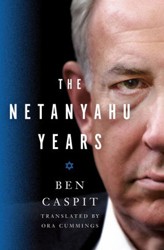The Jewish son of a Lithuanian blacksmith, Sidney R. Yates rose to the pinnacle of Washington power and influence. As chair of a House Appropriations Subcommittee, and dean of the Jewish Caucus, Yates was a preeminent national figure involved in issues ranging from the environment to Israel, and support for the arts. Speaker Tip O’Neill relied on the savvy Chicagoan in the trenches and advised anyone with controversial legislation to first “clear it with Sid!”
Michael C. Dorf and George Van Dusen draw on scores of interviews and unprecedented access to private papers to illuminate the life of an Illinois political icon. Wise, energetic, charismatic, petty, stubborn — Sid Yates presented a complicated character to constituents and colleagues alike. Yet his get-it-done approach to legislation allowed him to bridge partisan divides in the often-polarized House of Representatives. Following Yates from the campaign trail, to the negotiating table, to the House floor, Dorf and Van Dusen offer a rich portrait of a dealmaker extraordinaire and tireless patriot on a fifty-year journey through postwar American politics.




